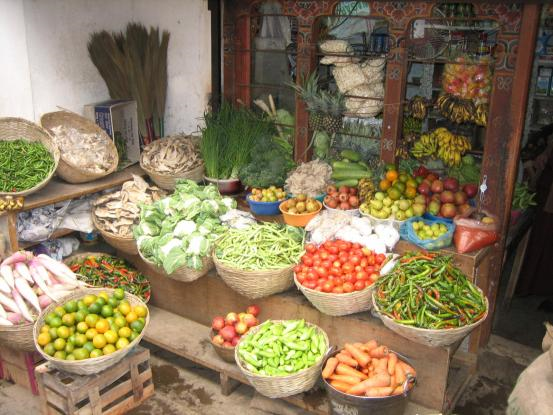Benin, Bhutan and Costa Rica have come together under a programme of South-South cooperation, sharing skills and knowledge on agriculture, environmental issues and much more, using funds from the Netherlands.
From their Costa Rican counterparts, Beninese farmers have learned how to grow bigger pineapples organically and market them to European consumers; while Costa Ricans are now feeding their cattle edible insects after learning of their value from colleagues in Benin.
“In Benin we identified that they eat insects,” said Marianella Feoli, Head of the Programme for South-South Cooperation, or PSC, representing Costa Rica. “In Costa Rica we don’t eat insects…But it turns out that Costa Rica has a strong capacity in turning traditional knowledge into scientific knowledge.”
And so the Costa Ricans adapted Benin’s insect snack into a cattle-feed supplement, reducing feed costs for livestock farmers. Similarly, Beninese farmers have learned how to grow pineapples to three times their previous size – and to do so organically – as well as market them to lucrative European consumers.
“The Costa Ricans came to explain to the Beninese how to produce pineapples in an industrialised way and how to market them overseas,” said Mathias Pofagi, the PSC representative in Benin. “The advantage of South-South Cooperation over North-South Cooperation is that it applies the Paris Declaration Principles. Beneficiary states identify their own priorities and execute them with financial support from the North.”
“North-South Cooperation is good but it has lots of weaknesses, too. It doesn’t benefit our countries as the North usually sends us their technical assistance, which takes a lot of the project budget,” said Mr Pofagi. “If the North was only financing our South-South activities, we could benefit more.”
Ms Feoli agreed, adding that the Netherlands’ very hands-off style of managing this project proved beneficial to its success.
“The Netherlands had a vision to fund the project and step outside,” said Ms Feoli. “It means that the three countries are taking all the decisions and the three countries are identifying the opportunities they want to share.”
In 2010, the PSC programme won the United Nations’ South-South Cooperation Award for Partnership. Ms Feoli and Mr Pofagi attended the EU Development Days in Brussels in December as representatives of the PSC programme.
In all, the three countries involved in the PSC programme have jointly engaged in 34 projects covering not only agricultural and environmental issues, but subjects like technology transfer, female empowerment and improved hygiene, too.
'South-South'
The term ‘South-South’ has been used by policy makers and academics to describe development cooperation between developing country partners. Traditional development cooperation has historically been a flow of ideas and resources from the economically developed nations of the northern hemisphere, the ‘North’, to the less developed nations of the southern hemisphere, the ‘South’. However, it’s worth pointing out that these terms, ‘North’ and ‘South’ are imperfect. Not all developed nations lie in the northern hemisphere, and not all southern nations are developing countries.


Log in with your EU Login account to post or comment on the platform.